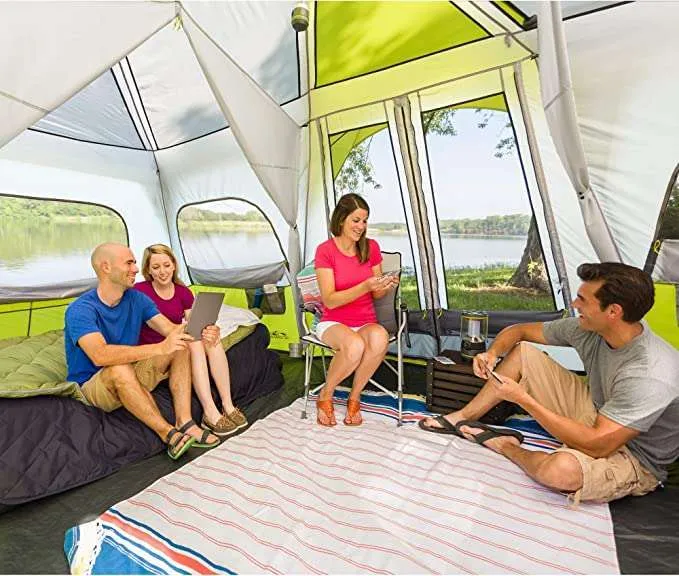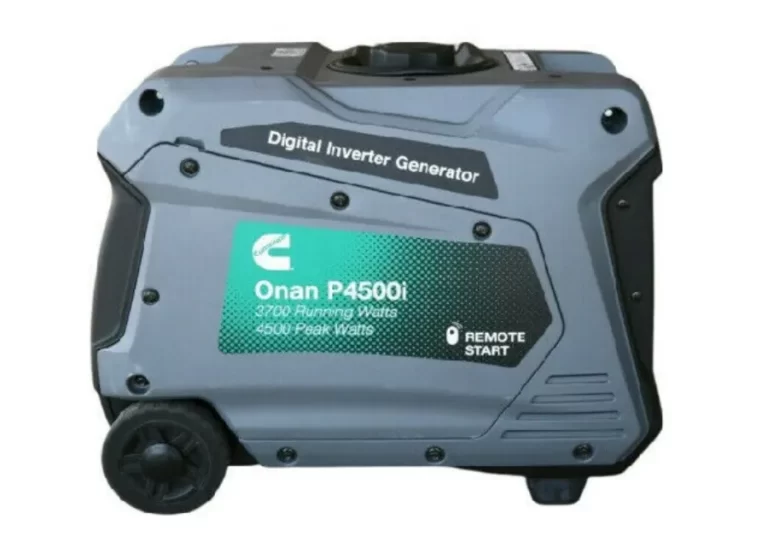Where to Store Small Coleman Propane Tanks at Home: A Guide for 2023

Last updated on August 13th, 2024 at 12:05 am
Small propane cylinders are more popular since they are portable, convenient, and cheaper than the larger tanks used to power big appliances at home. Still, this does not mean that you can forego the safety precautions related to propane tanks.
Small Coleman propane tanks should be stored outside, preferably in a detached shed. They should never be left or used indoors or in enclosed areas due to the fire hazard they pose. Also, ensure they are stored in a cool and well-ventilated area. You can use a storage cabinet or other elevated area outdoors for storage.
This article delves deep into the proper storage of propane tanks as well as offers an essential guide on the precautions to be taken when handling these tanks.
How to store small Coleman propane tanks at home?

Propane is a common versatile fuel that is mostly preferred since it is a clean-burning fuel. This fuel is made available in a wide range of different-sized containers. Many people opt for smaller ones due to the ease of storage and transportation.
However, it is a common misconception that the smaller ones are to be treated differently as they do not pose ‘too much’ danger.
Although small, these tanks are still dangerous if they are not properly transported, handled, or stored. The rules still apply—the tanks are to be stored in an upright position in a well-ventilated area.
The area should be flat, sturdy, and slightly elevated. Moreover, the temperatures of the storage area should not exceed 120 degrees Fahrenheit, nor go below -40.
Also, ensure that the tank is far from any flammable materials or electrical tools. At no point should they be stored inside the house. Here are some safety tips regarding the storage of Coleman propane tanks.
Store tank on a sturdy flat surface
Concrete slabs, a wooden pallet, or some bricks will do the trick. It is vital that the tank stays elevated from the ground to prevent standing water that could cause them to rust. Moreover, the elevation is instrumental in aiding airflow around the tank.
Store tanks at safe temperatures
As earlier mentioned, the tanks should not be stored in temperatures exceeding 120 or below -40 degrees Fahrenheit. Also, they should not be exposed to direct sunlight.
Extremely low temperatures cause a pressure drop in the tank. Eventually, when the valve is opened, the pressure may not be sufficient.
Keep tanks away from your living area
Propane tanks should never be stored in your living area. In case of a gas leak, these tanks pose a serious fire hazard, and no insurance company will take this lightly.
Do not cover the tank
You do not have to cover the tanks. With proper shade from the sunlight, they are fine outdoors.
Store in a well-ventilated place
A well-ventilated place is recommended as this gives a chance for any vapors to dissipate, rather than accumulate in one area.
Store away from flammable materials and electrical tools
Any source of ignition and other flammable materials can cause sparking when they come into contact with any vapors.
Store the tanks in an upright position
Storing the tanks upright helps to prevent blockage of the over-pressure valve. Failure to which, the tank is likely to explode.
How long can you store a 20lb propane tank?
Propane lasts a very long time, compared to other fuels. When inside a tank, it can even outlive the tank. If the propane tank and valve are in good condition, you can store it for 10 to 30 years. This reason also explains why many homeowners prefer propane. You can stock it up for as long as you wish.
A 20lb propane tank can conveniently last long in storage. This long shelf life makes the propane tank versatile and ideal for a variety of settings.
Are Coleman propane fuel tanks good for camping?
Coleman propane fuel tanks are good for camping. They are not only portable but also conveniently versatile. Hence, they make the best outdoor accessories for barbecues, grills, and space heating.
These propane tanks come in a variety of sizes and are very useful outdoors for propane stoves, tabletop grills, heaters, camp ovens, lanterns, and torches. Moreover, their design makes them convenient for transportation, are safe to carry, and propane gas is less toxic.
The common Coleman propane tank that is used for outdoor activities is the 1lb canister. It weighs 453g, good for carrying around on a camping trip. These are available in single and multiple packs with a refill cylinder.
Can you store a Coleman canister indoors?
No, Coleman canisters are not to be stored indoors. They pose a fire hazard which could result in loss of life and damage to property. In the event of any leakage, these tanks can ignite and cause massive flames. They should therefore be stored outdoors, away from sources of ignition and flammable materials.
The garage may seem ideal if you have many propane tanks and you do not want to leave them exposed to outdoor elements. They can also be vulnerable to theft outside. Therefore, you can store them in a garage as long as it is well-ventilated, it is stored upright, and away from flammable materials.
When not in use, Coleman canisters should be stored outside in well-ventilated areas and in a cool and dry place.
FAQs
Conclusion
Just because these small Coleman propane tanks are smaller does not mean that they should not be accorded the same treatment as the larger ones. The storage parameters apply for all propane tanks regardless of size. It is high time, and for your own safety, that you stop shoving them into corners of your house.
You Can Also Read:
- How Low Can You Discharge A Deep Cycle Battery
- How To Use A Marine Battery For Camping
- Is It Illegal to Have a Propane Tank Indoors
- Best 12V Portable Camping Fridge - August 13, 2024
- How to Insulate Slides on an RV - February 8, 2024
- How Much Water Does an RV Use Per Day? Understanding Your Daily Consumption - February 8, 2024






